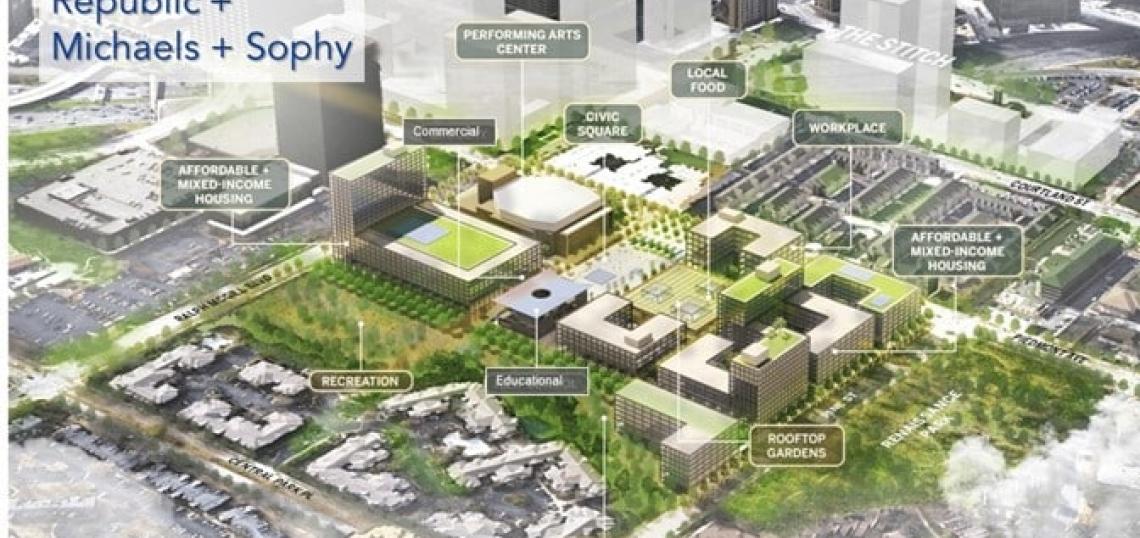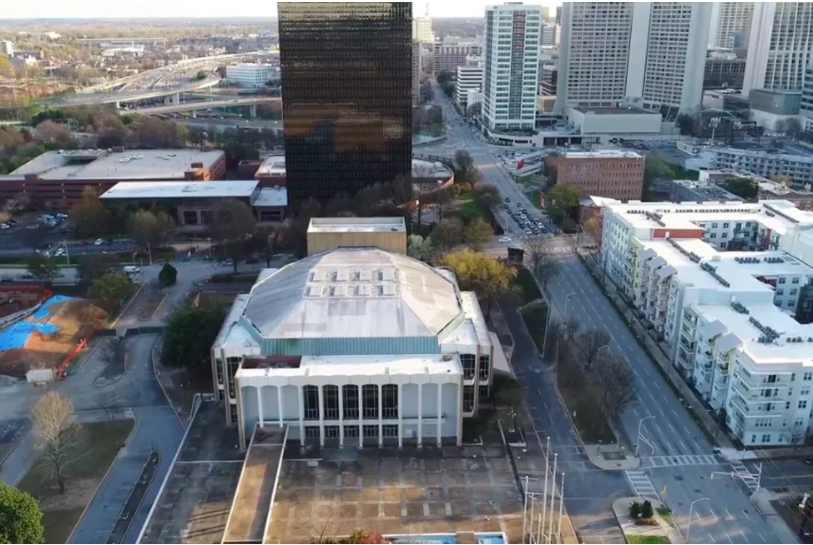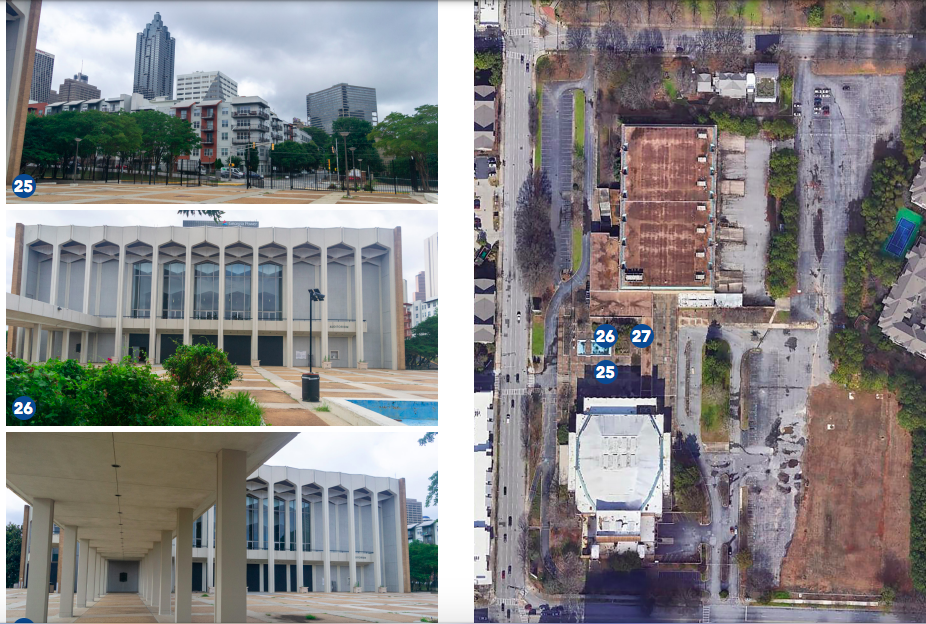When it comes to reshaping the Boisfeuillet Jones Atlanta Civic Center into a socially uplifting amenity for the city’s urban way of life, right at the junction of three of Atlanta’s most quickly redeveloping neighborhoods, will the third time be a charm?
One year after formally launching the search for qualified developers, Civic Center owners Atlanta Housing announced in late August a trio of companies has been selected to transform the historic Old Fourth Ward property into an ambitious blend of affordable and market-rate housing, retail, offices, education space, and hospitality uses, alongside public-accessible open spaces that could ultimately spell a $1-billion investment.
It’s the third time a development team has stepped up to tackle the job since the proverbial lights went out at the Civic Center eight long years ago.
This time, the Civic Center Evaluation Committee—comprised of Atlanta Housing staff, city officials, Invest Atlanta representatives, and regular community members—made a unanimous decision for a public-private partnership that would remake almost all (14.7 acres) of the 19-acre property.
As intown development sites go, it’s a huge palette.
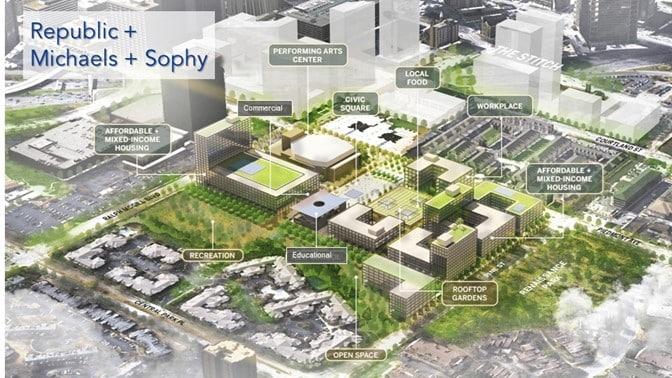 The general breakdown of expected Civic Center uses, as seen looking southwest, into downtown Atlanta. Atlanta Housing
The general breakdown of expected Civic Center uses, as seen looking southwest, into downtown Atlanta. Atlanta Housing
Picked to take on the Civic Center redevelopment were national developers The Republic Family of Companies (Washington D.C.-based) and The Michaels Organization (New Jersey-based), alongside Atlanta-based, minority-owned development firm Sophy Capital.
The development team’s $575-million plan is so large, it would take a decade to fully realize across multiple phases, according to Atlanta Housing. Beyond new buildings, it would reconnect the area’s street grid and include pedestrian connectivity and public greenspace, while generally emphasizing inclusivity, sustainability and affordability, according to Atlanta Housing’s interpretation.
More specifically, the Republic-led plan calls for 1,311 housing units—or about five times the number of apartments currently offered a few blocks away at Ponce City Market.
More than one-third of those homes (525) would be offered as affordable housing for people earning at or below 80 percent of the area’s median income. The majority of those (305 units) would include Atlanta Housing HomeFlex subsidies, which are typically provided to families earning 60 percent of AMI max, officials have said.
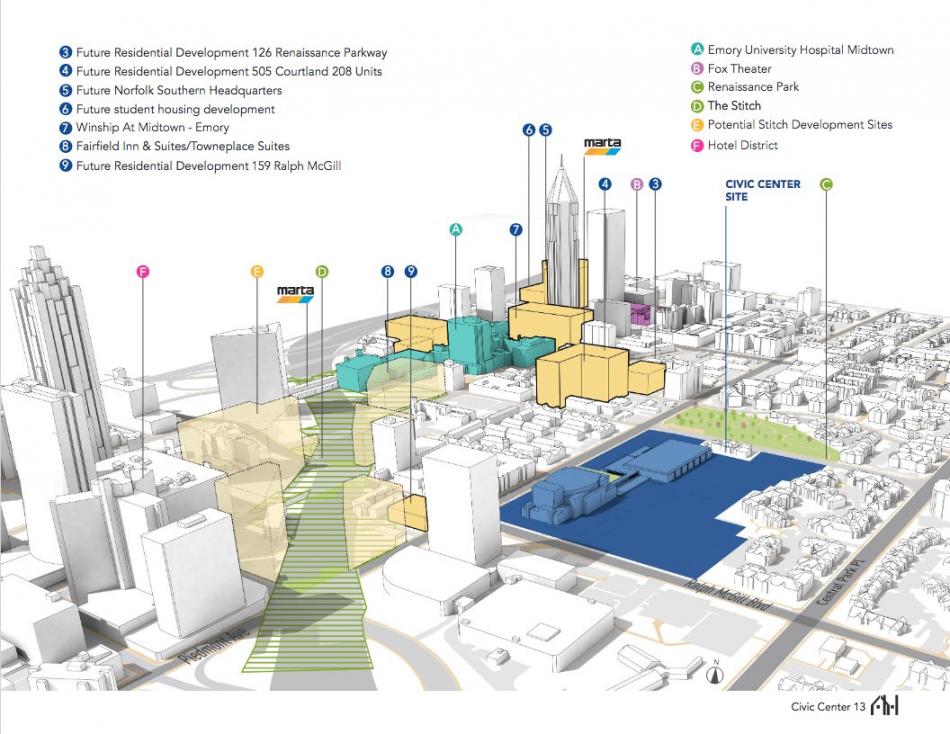 An overview of the area's context, with the full 19-acre Civic Center property outlined in blue. Atlanta Housing/2022
An overview of the area's context, with the full 19-acre Civic Center property outlined in blue. Atlanta Housing/2022
All told, 1.8-million square feet of new mixed-use development, plus a new school, would rise around the Civic Center’s iconic buildings. Plans call for a grocery, structures with rooftop gardens, open spaces and recreational areas, plus a civic square and outdoor zone for local food, according to Atlanta Housing.
The deal goes that Atlanta Housing would enter into a 99-year ground lease with developers and recoup the $41.7 million it paid for the idle Civic Center property in 2017.
The Civic Center, a New Formalist landmark, was designed by Harold Montague of Robert & Co. and opened in 1965 as a home base for arts in the city. Positioned along the western edge of Old Fourth Ward, the building has hosted the Metropolitan Opera, Theater of the Stars, Atlanta Opera, and more recently television shows such as Steve Harvey’s Family Feud. It’s been empty and idle, apart from some concerts and events, since 2014.
In 2016, Texas developer Weingarten Realty abandoned efforts to singlehandedly transform the Civic Center site into a mixed-use utopia with some 650 housing units and a Publix grocery. Two years later, preservation group Historic Atlanta led a push to ensure historically significant structures on site—including a 4,600-seat auditorium, with what’s thought to be Georgia’s largest stage—weren’t destined to be razed. Today, entrances to that Performing Arts Center and an adjacent Exhibition Hall are anchored by a formal plaza and fountain that “continue the tradition of cultural institutions serving as both an iconic landmark and public amenity for urban residents,” as Atlanta Housing describes the property layout.
In June, the Civic Center’s plight took another strange turn when New York-based developer Tishman Speyer backed out of plans to partner with Atlanta’s H.J. Russel & Co. to transform the property. Atlanta Housing officials called Tishman Speyer’s latest development about-face in Atlanta—the company also bailed on plans to redo The Mall West End last year—a “great surprise,” as Atlanta Civic Circle reported.
Atlanta Housing’s selection last month also authorized the latest/last development team to take part in master-planning and potentially redeveloping the Civic Center’s plaza and Performing Arts Center.
The next step calls for finalizing business terms and conducting final due diligence. Atlanta Housing expects to have a signed agreement in hand within six to nine months—and to launch construction in late 2023.
After the public-private partnership was announced, Atlanta Mayor Andre Dickens released a statement enthusing that a Civic Center redo could infuse $1 billion into the historic neighborhood while “providing thousands of Atlantans from all walks of life with endless opportunities,” creating “a true civic anchor at the heart of a new livable and equitable community.”
The third time, if such things come to fruition, could truly be charmed.
• Before/after: A decade of changes in Atlanta's Old Fourth Ward (Urbanize Atlanta)





